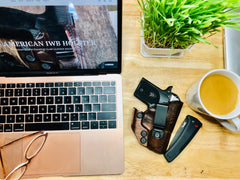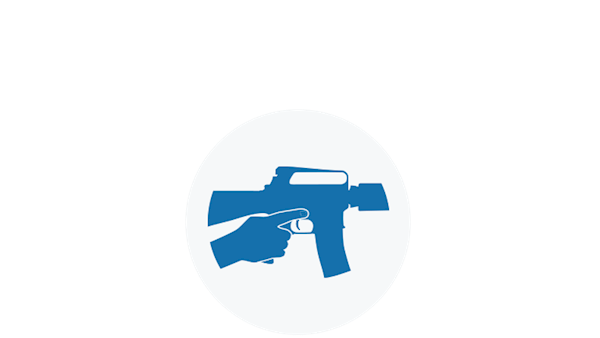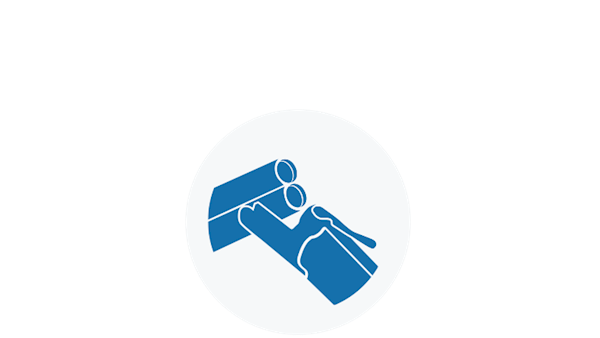12 TIPS TO NEW GUN OWNERSHIP

Bearing Arms is your right, Protecting your family is your responsibility!
12 tips to new gun ownership.
- Always treat the gun as loaded.
- Always keep the gun pointed in a safe direction.
- Always keep your finger straight and off the trigger until you are ready to shoot.
- Always keep the gun unloaded until you are ready to use it.
- Never point the gun at anything you don't intend to destroy.
- Be sure of your target and what is beyond it.
- Learn the mechanical and handling characteristics of the gun you are using.
- Always use proper Ammunition.
- Be sure the barrel is clear of obstructions before loading and shooting.
- If your gun fails to fire when the trigger is pulled, hold your shooting position for several seconds; then with the muzzle pointed in a safe direction, carefully unload the gun.
- Don't rely on the gun's safety to keep it from firing.
- Be aware of your surroundings when handling guns so you don't trip or lose your balance and accidentally point and/or fire the gun at anyone or anything.
You must know all your rights, responsibilities and obligations as a responsible gun owner.

Here are The fundamental NRA rules for safe gun handling are:

ALWAYS Keep The Gun Pointed In A Safe Direction
This is the primary rule of gun safety. Common sense dictates the safest direction, depending on different circumstances.

ALWAYS Keep Your Finger Off The Trigger Until Ready To Shoot
When holding a gun, rest your finger alongside the frame and outside the trigger guard. Until you are actually ready to fire, do not touch the trigger.

ALWAYS Keep The Gun Unloaded Until Ready To Use
If you do not know how to open the action or inspect the chamber(s), leave the gun alone and get help from someone who does.
Know your target and what is beyond.
Be absolutely sure you have identified your target beyond any doubt. Equally important, be aware of the area beyond your target. This means observing your prospective area of fire before you shoot. Never fire in a direction in which there are people or any other potential for mishap. Think first. Shoot second.
Know how to use the gun safely.
Before handling a gun, learn how it operates. Know its basic parts, how to safely open and close the action and remove any ammunition from the gun or magazine. Remember, a gun's mechanical safety device is never foolproof. Nothing can ever replace safe gun handling.
Be sure the gun is safe to operate.
Just like other tools, guns need regular maintenance to remain operable. Regular cleaning and proper storage are a part of the gun's general upkeep. If there is any question concerning a gun's ability to function, a knowledgeable gunsmith should look at it.
Use only the correct ammunition for your gun.
Only BBs, pellets, cartridges or shells designed for a particular gun can be fired safely in that gun. Most guns have the ammunition type stamped on the barrel. Ammunition can be identified by information printed on the box and sometimes stamped on the cartridge. Do not shoot the gun unless you know you have the proper ammunition.
Wear eye and ear protection as appropriate.
Guns are loud and the noise can cause hearing damage. They can also emit debris and hot gasses that could cause eye injury. For these reasons, shooting glasses and hearing protection should be worn by shooters and spectators.
Never use alcohol, over-the-counter drugs or prescription drugs before or while shooting.
Alcohol, as well as any other substance likely to impair normal mental or physical bodily functions, must not be used before or while handling or shooting guns.
Store guns so they are not accessible to unauthorized persons.
Many factors must be considered when deciding where and how to store guns. A person's particular situation will be a major part of the consideration. Dozens of gun storage devices, as well as locking devices that attach directly to the gun, are available. However, mechanical locking devices, like the mechanical safeties built into guns, can fail and should not be used as a substitute for safe gun handling and the observance of all gun-safety rules.
Additional Safety Precautions
Be aware that certain types of guns and many shooting activities require additional safety precautions.
Cleaning
Regular cleaning is important in order for your gun to operate correctly and safely. Taking proper care of it will also maintain its value and extend its life. Your gun should be cleaned every time that it is used.
A gun brought out of prolonged storage should also be cleaned before shooting. Accumulated moisture and dirt, or solidified grease and oil, can prevent the gun from operating properly.
Before cleaning your gun, make absolutely sure that it is unloaded. The gun's action should be open during the cleaning process. Also, be sure that no ammunition is present in the cleaning area.
Get local Training and develop safe, ethical, responsible shooting. Get started today!
VISIT: https://firearmtraining.nra.org/



Leave a comment